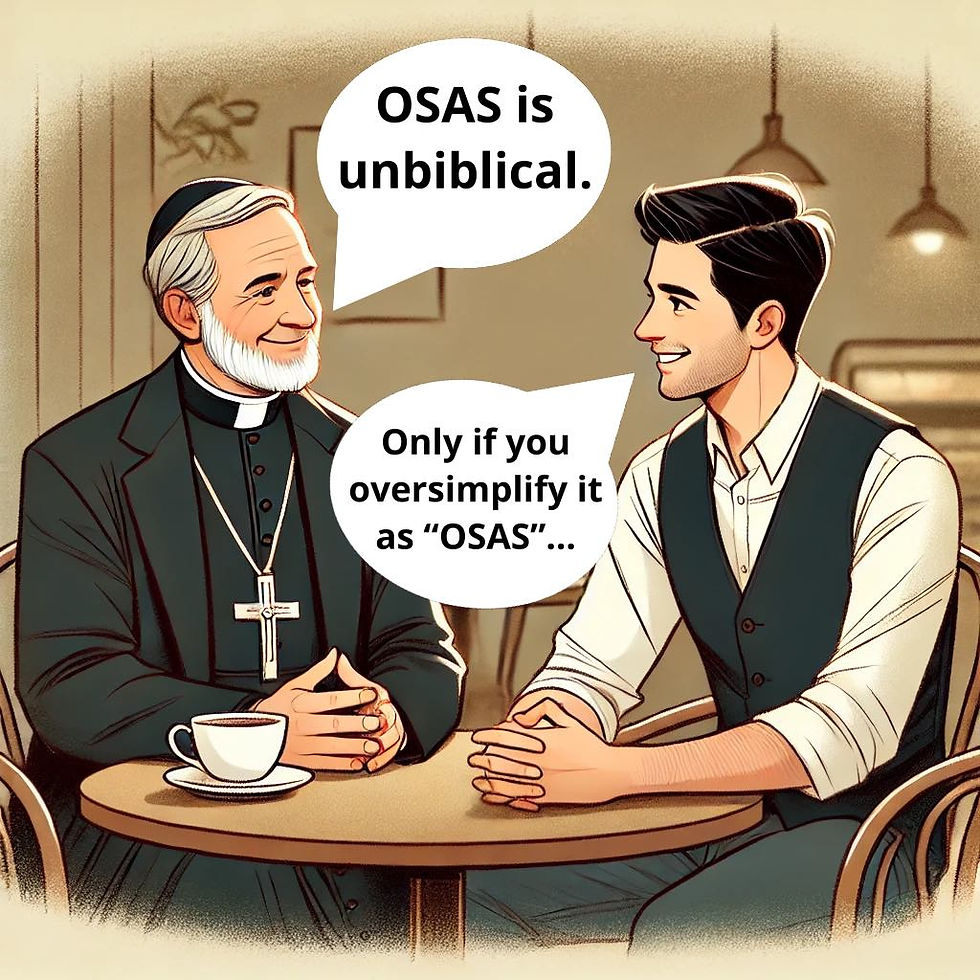The flaw in the flaw of Eternal Security
- Bible Brian

- Aug 6, 2021
- 2 min read
Updated: Aug 1, 2023

A common objection to Eternal Security is that if we cannot lose salvation by sinning, what is there to stop us from sinning? The first problem with this is that it's actually the appeal to consequence fallacy. Rather than showing that Eternal Security is a false doctrine, it is suggested that it would be a bad thing if it was true.
But by far the easiest way to respond to this objection is to ask the one making it how they would act if they believed it was true. This puts them in a rather awkward position. If they say they would sin to their heart's content if they believed they could stay saved, they're actually confessing to a very serious heart problem. Namely, they are admitting that the only thing stopping them from sinning is the fear of God's wrath, not the love of His Holiness. They aren't obeying God out of love or gratitude, but out of fear, which is still far better than not obeying God, but is nevertheless not quite as good as "be Holy because I am Holy" (Leviticus 11:44; 1 Peter 1:13-16).
If, by contrast, they say no, they would not take Eternal Security as an excuse to sin, they nullify their own point, because they demonstrate that not only are there motives aside from Heaven and Hell to remain on God's side, so to speak, but that they themselves have those motives. As, of course, do the millions of Christians around the world who do believe in Eternal Security, yet have not used it as an excuse to sin.
In both scenarios, this point becomes useless. If you would use Eternal Security as an excuse to sin, you've admitted that there's a bigger problem with you than with the doctrine, but if you say you wouldn't, you've basically admitted that the problem does not exist.
Of course, you could point out that there are people who do take Eternal Security as an excuse. But you can flip that and show that there are those who take Conditional Security as an excuse also. This is an unfortunate consequence of immaturity. Those who take Eternal Security as an excuse to sin aren't doing so because the doctrine gives them permission, but because they haven't taken their faith seriously. Either that or they haven't ever had salvation to lose in the first place.
Of course, the Bible clearly presents salvation as a gift given by God apart from works, and so losing it by works would be impossible. But it does not present salvation as a thing that can be received without faith, and faith, by its very nature, produces works. If you have no faith, you're not saved regardless of what you do. If you do have faith, you are saved, and you cannot lose it no matter what you do, but if you don't act like you have faith, do you really have faith? If you have no faith, how can you be saved? You see, then, that those who believe in Conditional Security have the relationship between works and salvation the wrong way round. In Conditional Security, works cause salvation. In Eternal Security, salvation causes works.






Comments